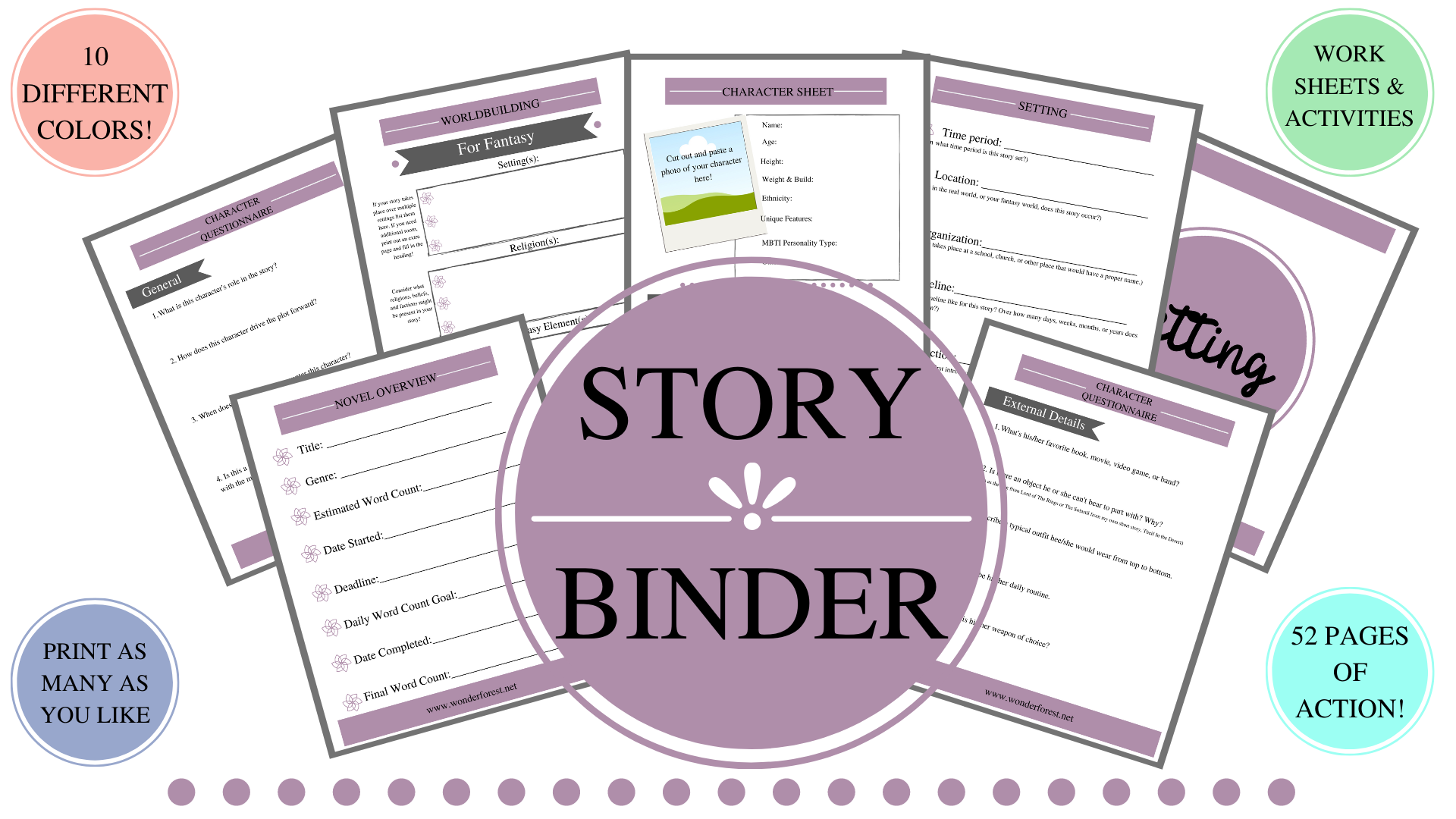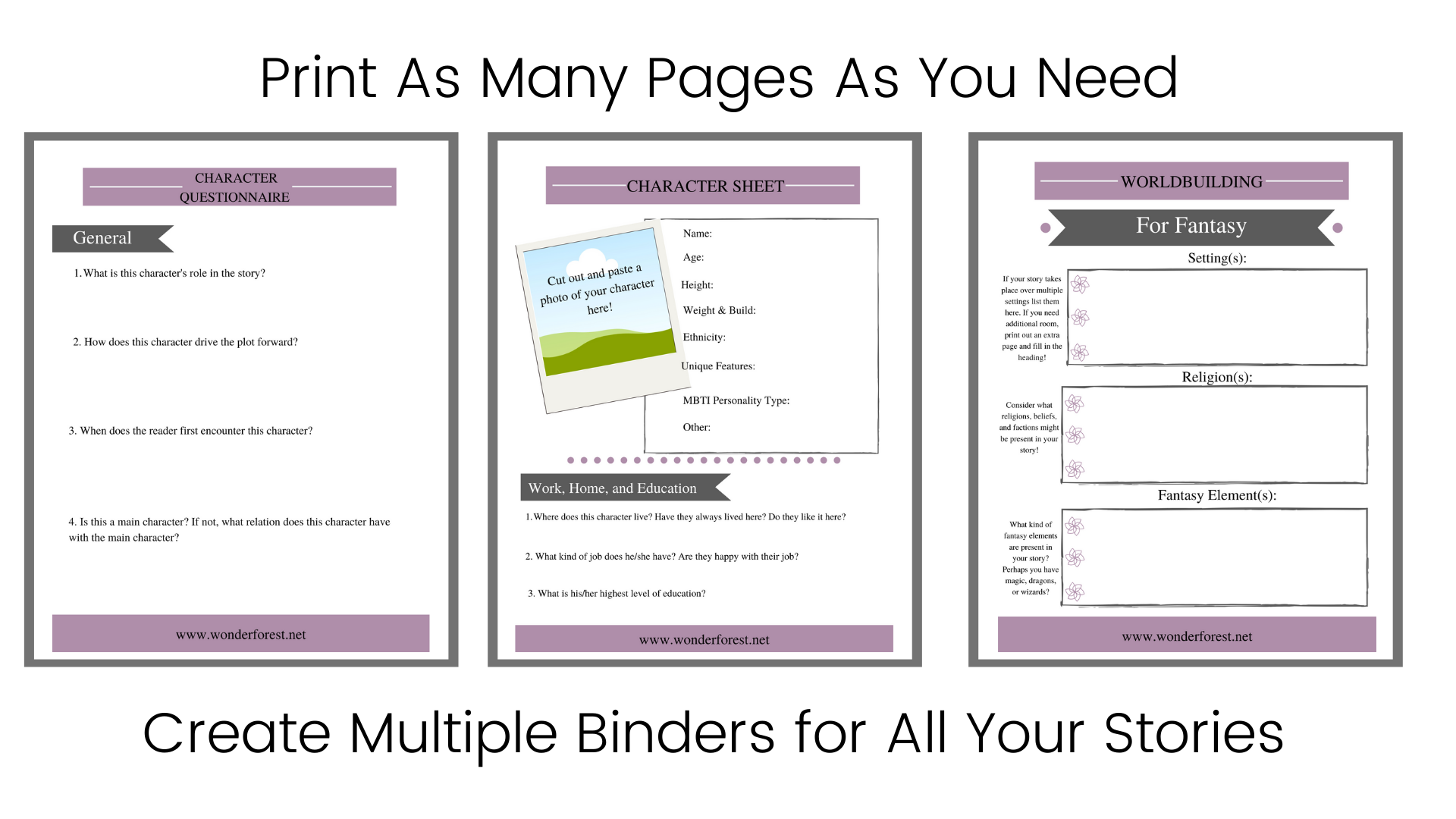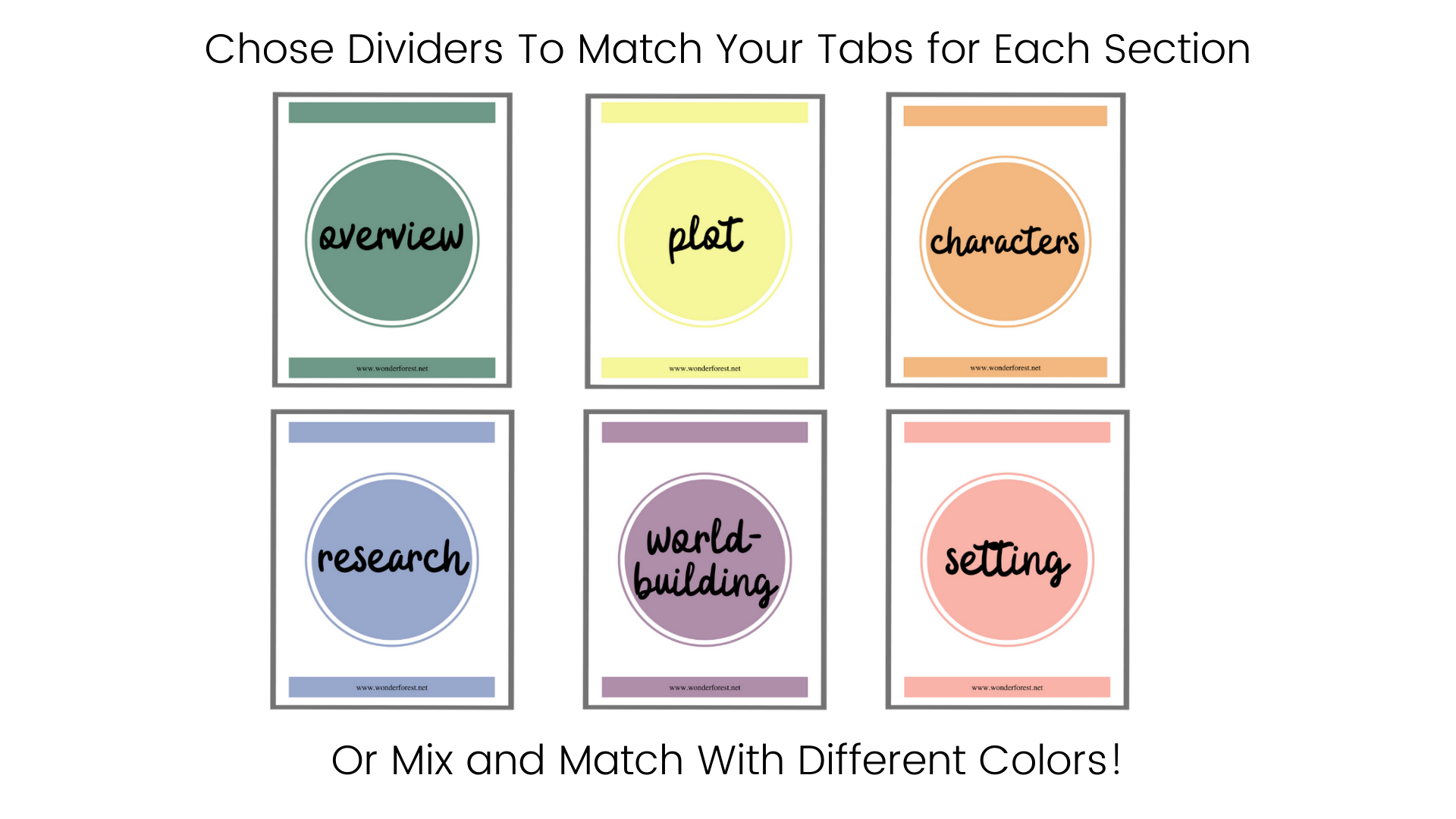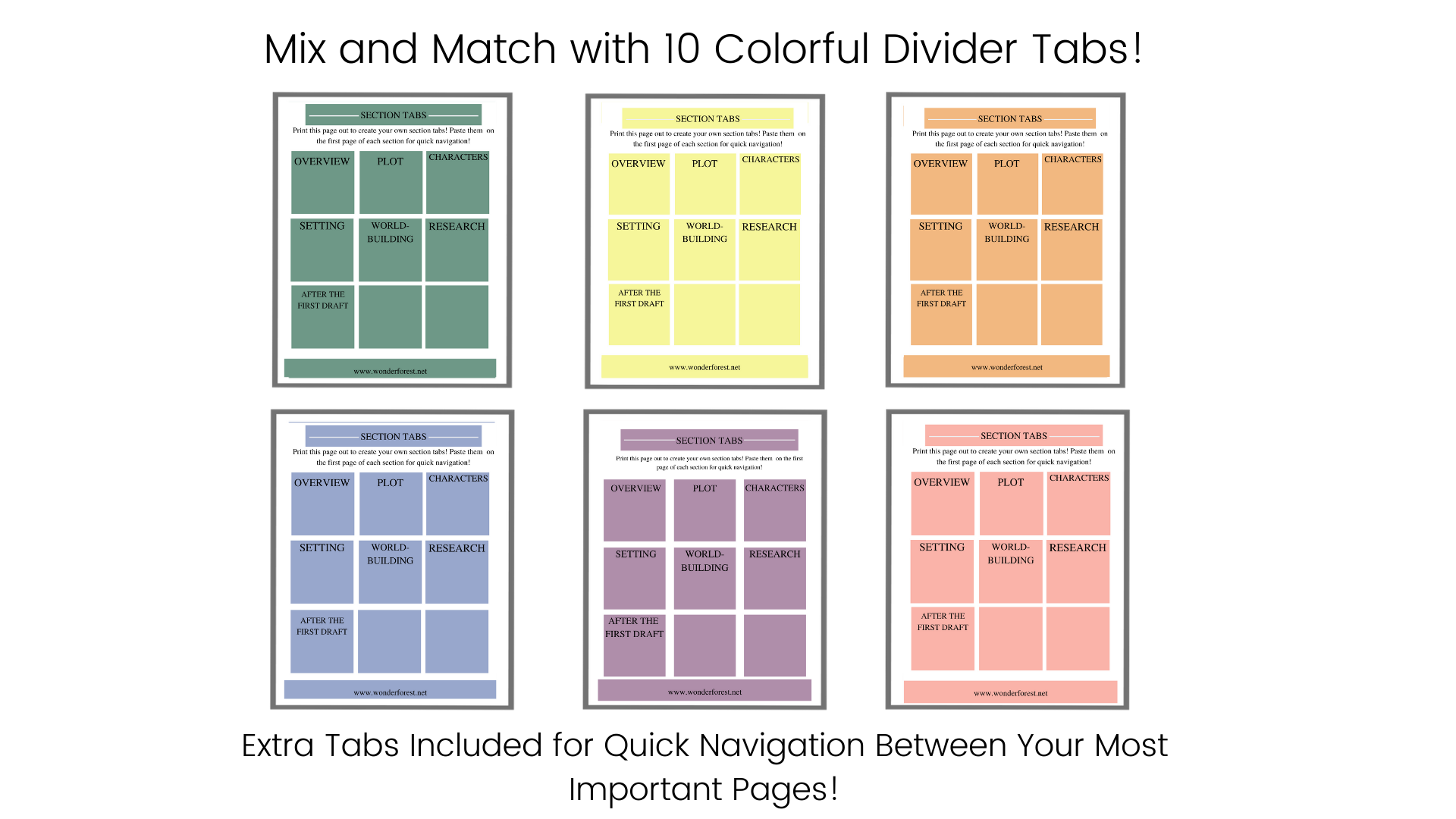How To Organize Your Digital Life: 5 Tips For Staying Organized as a Writer or Freelancer
When it comes to writing, something we don’t always keep in mind is how necessary it is to keep our materials/notes organized and our writing space clutter-free. If you’ve been around the blog for a moment, then you know I am a huge proponent of Gretchen Rubin’s Outer Order Inner Calm and I practically preach that book at any opportunity I get.
But it’s not just the “outer” organization that matters. In fact, as writers, we have several writing spaces that all need to be kept tidy in order for us to write stress-free. We have our digital space which encompasses the cloud, your PC or Mac’s hard drive, and your email inbox. Then, we have our physical space which encompasses our actual writing area such as our desks and the room in which we do the actual writing. Lastly, our most important writing space is our notebooks, binders, and folders that hold anything related to our books and their contents. By keeping all of these things organized, you set yourself up for success in your writing.
Keeping the Cloud Organized
This is probably one of the easiest elements of our writing space to keep organized. If you use Google Drive, One Drive, or Dropbox, then you know your content is safe and secure in the cloud so you can write freely without the worry of corrupted files or the loss of unsaved work. However, it can be quite easy to clutter up your cloud storage pretty quickly. One way to keep cloud storage organized is to routinely remove unnecessary documents and keep only the essentials in the cloud. The second way to keep your cloud storage organized is to create a file system that makes sense and is easy to navigate.
Pro Tip: While we’re on the subject of external storage, I have to take a moment to say how important it is to have a backup storage system in case of a power outage, file corruption, or anything else that can cause you to lose you work. The worst thing to happen to a writer is to lose all the progress you’ve made and have to start over due to poor storage practices. I keep a current back up of all my content both in the cloud and on an external hard drive.
Keeping Your Hard Drive Organized
Borrowing some advice from the first item in this list, you can keep your hard drive organized by creating a file system that makes sense and is easy to navigate. My favorite way to organize my folders for both writing, editing, and work on my website, is to colorize them with this handy little tool called Folder Colorizer. (Not affiliated with them, I just really love this application!)
In the screenshots below you can see how I colorize my folders for my website. The color-coding helps me know at a glance which of my projects need to be started, have been started and have some progress, and which projects are completed and ready to be posted. For a traditional book writer, this might look a little different, such as red for “to-do’s” yellow for “works in progress” and green for “completed” elements of your novel. By picking the novel process apart, it makes the project seem a little less daunting.
Color-coding folders with Folder Colorizer.
You can color-code folders with Google Drive (for free) as well, but color options are limited.
Keeping Your Email Inbox Organized
Inbox 0 is one of the most satisfying things ever. Maybe that’s saying something about how boring my life is but seriously, if you’ve never cleaned your inbox out completely, then you’ve got to do it! Unsubscribe from email lists that aren’t helping you grow as a writer or freelancer, delete old conversations, and organize that inbox! I have a “delete later” folder that houses all of my important but not that important emails that I want to hang onto for a little while. After a few months, this folder gets emptied, but it saves my inbox from getting cluttered.
Other folder ideas for email organization include:
5-year folder or 7-year folder for all business documentation —Read this post from Nolo that explains what types of documentation you should keep on record for your business.
Clients folder for emails between yourself and clients or your other site users and clients
B2B folder for emails from your business to other businesses
Legal folder for any important legal documents you may need to access easily
*Make sure to back up any super important documents in a secondary backup location.
Keeping Your Physical Space Organized
Rodrigo Cazanova’s Post-It Board keeps his writing organized. He says the purple notes are for the character’s travels, the pink notes are character interactions, the blue ones are info notes, and the green sticky notes are scenes.
This is probably one of the least fun of the organization methods I am suggesting but its completely necessary to creating a space that is conducive to writing. I won’t go on another rant about Gretchen Rubin, but I will show you a few ways to keep your physical writing space organized.
Create a file system or caddy for all your notes, notebooks, binders, etc.
Set up a clean and organized desk area to write (your bed doesn’t count!)
Use a dry-erase board, bulletin board, or post-it note system to stay on track
Design a vision board or playlist that reminds you of your novel, the setting, and the characters to help you stay focused when you sit down to write
Keeping Your Notebooks and Binders Organized
I prefer to use a binder, but some writers prefer notebooks. It’s all about what works for you and what is easier to keep organized. Kristen Martin prefers to use several different notebooks for different aspects of her writing and projects. A friend of mine from a writer group on Facebook prefers to use a bulletin board system for keeping his work organized. Another writerly friend I know uses a planner for her books. She outlines the book and sets a deadline, then uses the planner to help her stay on track throughout the writing process.
Since I prefer the single binder method, I have included a special kit for you guys! This printable set of binder pages will help you keep your writing notes organized and neat all in one place!







Click here to get your Story Binder Printables!
If you’d like to read a continuation of these tips, check out my blog post, 5 More Tips for Staying organized as a Freelancer!
And that’s it for my 5 tips for staying organized as a writer! What organization methods do you use? Are there any that I haven’t listed here that you just love? Comment below!
Thumbnail photo by Markus Spiske.




